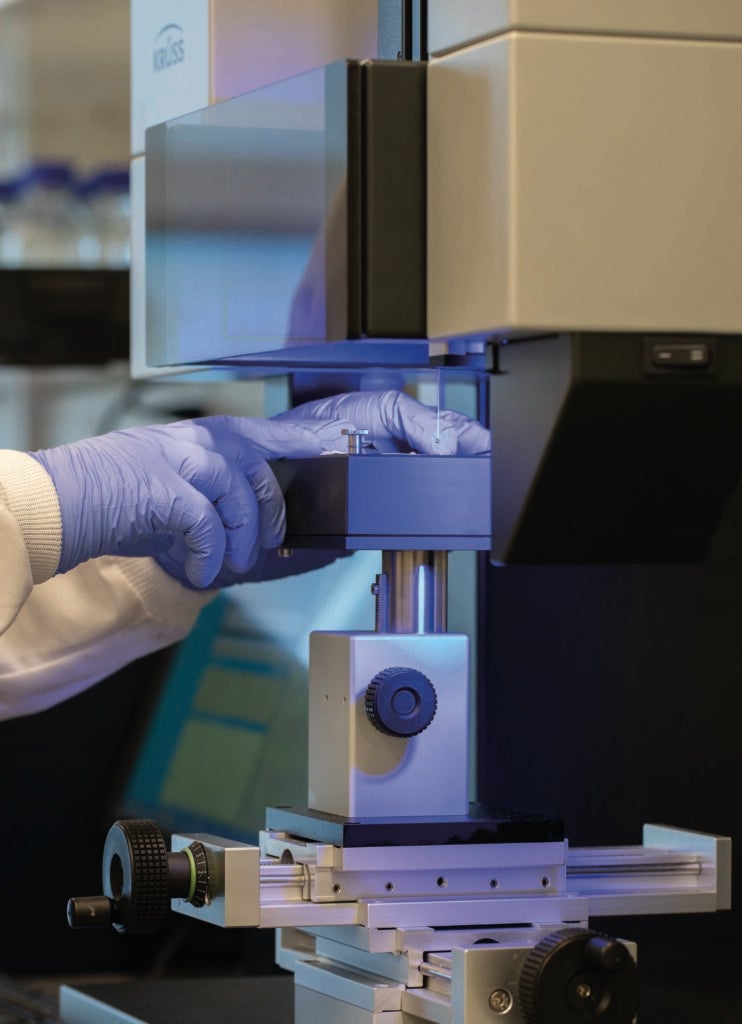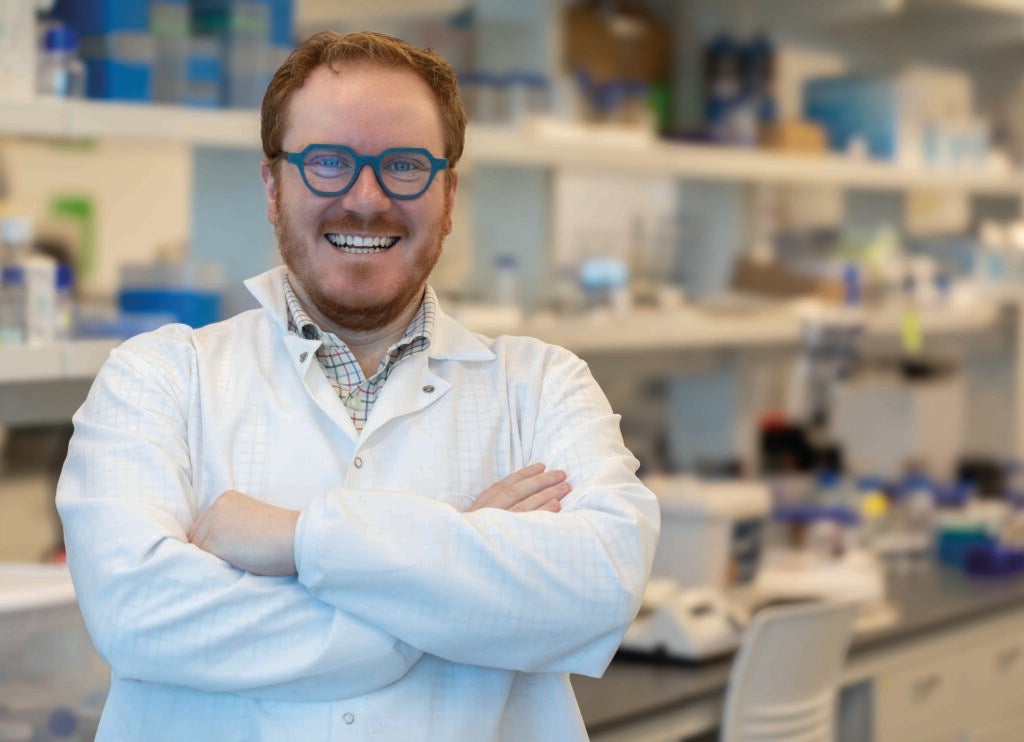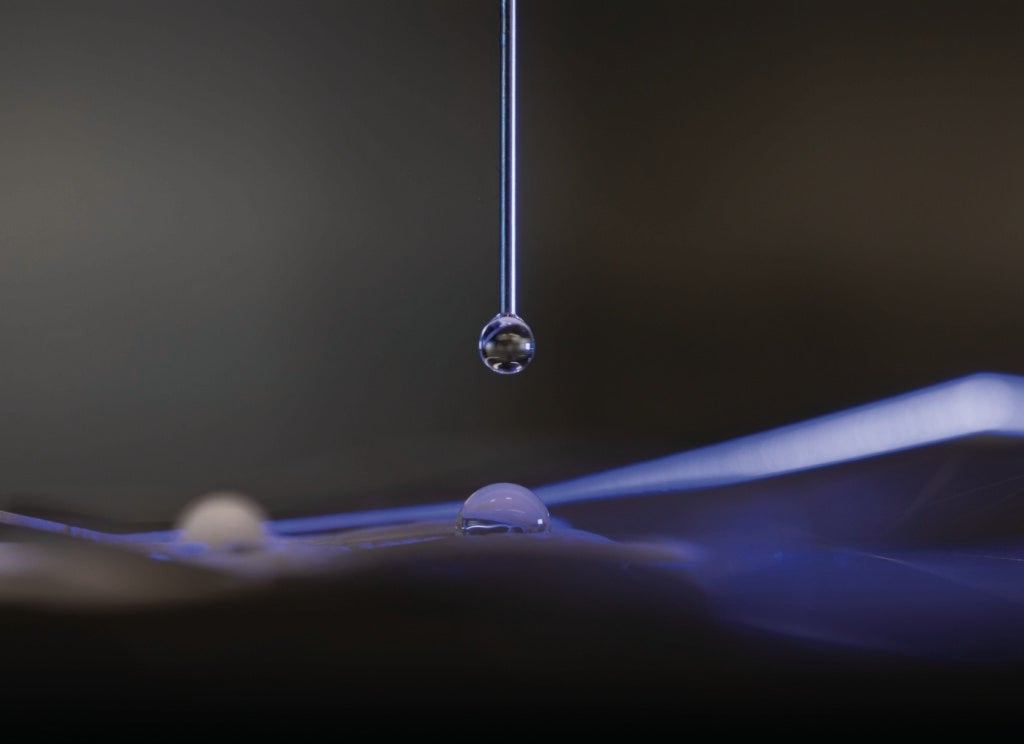What if you could print three-dimensional biological tissue that could be grown into a functioning organ for transplant? The global impact on the organ transplant system would be transformative.

“If we know how to make materials that can behave like solids or liquids, we can start to design new materials for additive manufacturing. The current 3D printing process can be detrimental if you want to include cells. We have developed a mechanism to control the materials so they can be extruded through a syringe and become a solid piece of material once you’re done printing.”Ryan Poling-Skutvik Assistant Professor Department of Chemical, Biomolecular, and Materials Engineering
But first, you’d need to understand the material properties required to print biological tissues—specifically how materials transition between liquid and solid states. These mechanisms are not well understood. Ryan Poling-Skutvik, assistant professor, Department of Chemical, Biomolecular, and Materials Engineering, and his team are working to address this knowledge gap.
Poling-Skutvik’s 2024 CAREER award funds research to design soft gels of dispersed particles with independent elasticity and viscosity by introducing a unique mechanism in which polymers bridge between the particles. The goal: to develop efficient, cost-effective materials comprised primarily of liquids yet possess mechanical properties comparable to high-performance engineering materials.

Assistant Professor
Department of Chemical, Biomolecular, and Materials Engineering
“If we know how to make materials that can behave like solids or liquids, we can start to design new materials for additive manufacturing,” Poling-Skutvik says. “The current 3D printing process can be detrimental if you want to include cells. We have developed a mechanism to control the materials so they can be extruded through a syringe and become a solid piece of material once you’re done printing.
“A little longer term, we could take this biological inspiration, and if we know the mechanisms of how biology can transform from liquid to solid, we can start to create materials that mimic the properties of biology but are made synthetically. We could have all the benefits of synthetic chemistry with the functionality of biology.”
The technology could have long-lasting implications for a severely limited transplant system. The materials developed in Poling-Skutvik’s lab don’t have this functionality yet, but they hope to develop methods to control the cohesion between cells and enable them to be printed. Long-term, his team could also create materials that replicate some of the functions of biology.
“Currently, it’s difficult to understand where vaccines or chemotherapeutics go inside of tissues because you can’t easily look inside a patient,” Poling-Skutvik says. “We now have a material where people who are innovating in that space could put their drugs inside our material, look at it under a microscope, and gain deep understanding of where their drugs go in tissue. Then you can optimize that to make some of those theradiagnostics innovate faster.”
Poling-Skutvik says the award holds significant impact for young career scientists who are trying to define what they can do, what problems they care about, and the approaches they offer.
“The CAREER award validates many of those aspirations, confirming that this is an interesting problem, that it’s an interesting approach, and that we believe as a scientific community that this could benefit society. It’s nice to have that acknowledged,” he explains.
In addition to real-world benefits, the award supports multiple URI students involved in the research. The vast majority goes toward stipends and tuition, and enables Poling-Skutvik to bring additional graduate students into his group to train in new skills and work on important projects.
What’s more, the NSF has a directive from Congress that awards must achieve a broader impact. Poling-Skutvik’s project achieves that by improving the dissemination of scientific knowledge and training to communities. He engages in targeted outreach efforts focused on recruiting and retaining students. These include hands-on experiential workshops conducted in collaboration with community groups, role model introductions, and mentorship.
“My outreach ensures that students understand that STEM and engineering are a welcoming environment and that we want students to come in and learn and gain these skills,” Poling-Skutvik says.

